The vegan diet was once a fringe lifestyle choice — but South Australians are increasingly giving peas a chance. And beets. And legumes. And as it enters the mainstream, big business is getting on board.
It’s late afternoon in the Adelaide Hills and Adrian Romeo has a rainbow of vegetables spread out before him as he prepares dinner for his family.
Tomatoes, onions, red and green peppers, cucumbers, avocados, baby spinach and more are being sliced and diced at the kitchen bench.
His two daughters, Cecilia, 22 months, and Isabel, nearly four, snack on cubes of rockmelon.
Burritos are on the menu for dinner tonight at his wife Shannon’s parents’ home, and there’s not an animal product in sight.
The Romeos are vegans, and their daughters have eaten nothing but plant-based food since being weaned from their mother’s milk.
They’re bright, rosy-cheeked little girls who clearly love their food, and their parents look a picture of good health.
Maybe they’re naturally blessed with radiant skin and sparkling eyes. Perhaps it’s their diet. Whatever, Adrian, 40, and Shannon, 38, look much younger than their years.
Argentinian by birth, Adrian was raised “meat first”, he says.
Shannon has been vegetarian since her 20s, and vegan since 2012.
He made the big leap to a vegan diet a couple of months after they got together. “It was a big thing,” he recalls. Immediately, the quality of his sleep improved.
“It was as if I’d never slept before in my life,” he says.
“I had amazing sleeps.” Within a matter of weeks, he shed 9.5kg, and ultimately lost 14kg.
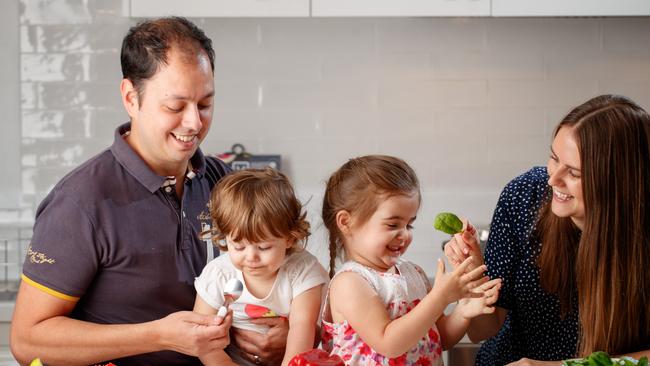
The Romeos are among a growing number of people around the world who, for various reasons, are choosing to reject animal products and eat only plant-based foods.
That means no dairy, and no eggs (which vegetarians commonly include in their diet).
Strict vegans also forgo honey, are vigilant about the myriad unseen animal products used in food and beverage processing, and avoid leather, wool and silk.
It’s a trend that’s catching on, boosted by the likes of famous disciples from Benedict Cumberbatch and Bill Clinton to Venus Williams and Teresa Palmer.
The Economist magazine, in its World in 2019 issue, declared this would be the Year of the Vegan – quite a shift for something that has, until recently, been a fringe lifestyle choice.
In the US, it reported, a quarter of 25 to 34-year-olds identify as vegetarian or vegan. In the UK, an estimated 600,000 people call themselves vegans, according to The Times.
Firm figures are hard to come by, but here in Australia, anecdotal evidence suggests a dramatic rise in awareness and adoption of vegan diets, even if only intermittently.
Research company Euromonitor International reports that we are the third-fasting growing market for vegan products in the world, with sales for packaged vegan food tipped to rise from $136 million to $215m by 2020.
The Economist reports that in the US, sales of vegan foods to June 2018 grew 10 times faster than overall food sales.

You only have to look at your supermarket shelves to see the signs that vegan is, indeed, mainstream.
There are a plethora of processed food options, including plant-based burgers that “bleed” red juice (beetroot) just like a beef one.
Not far from real meat mince you’re likely to find mock mince, and the same for sausages. Even fast food is going vegan.
Dominos introduced its fourth vegan pizza in January, after its other vegan varieties introduced last year sold like, well, hot pizza.
Demand was so strong that the chain’s stocks of non-dairy cheese ran out within a week.
Hungry Jack’s have a vegan burger and this year put vegan breakfast muffins on its menu, and those bleeding beetroot patties have been adopted by national burger chain Grill’d.
Even Magnum ice creams now come in non-dairy varieties, launched by Streets in February.
In Adelaide, the Tasting Australia food festival, which runs until next Sunday, will for the first time include a full day of vegan tastings and events, called Vegan Palooza.
Event organiser Lea McBride also runs the annual Vegan Festival Adelaide where, she says, attendance has swelled from around 1200 people when it started in 2007 to 18,000 last year.
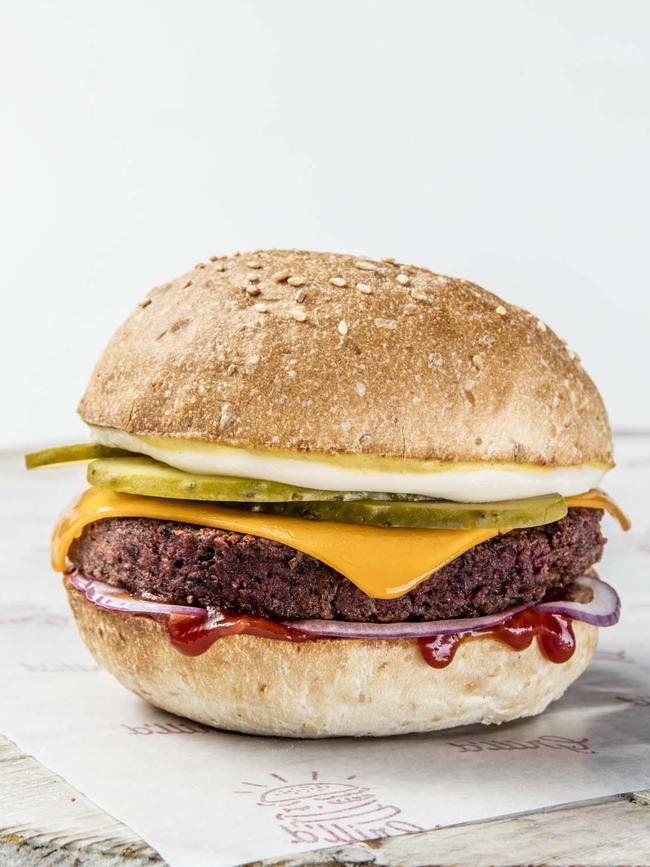
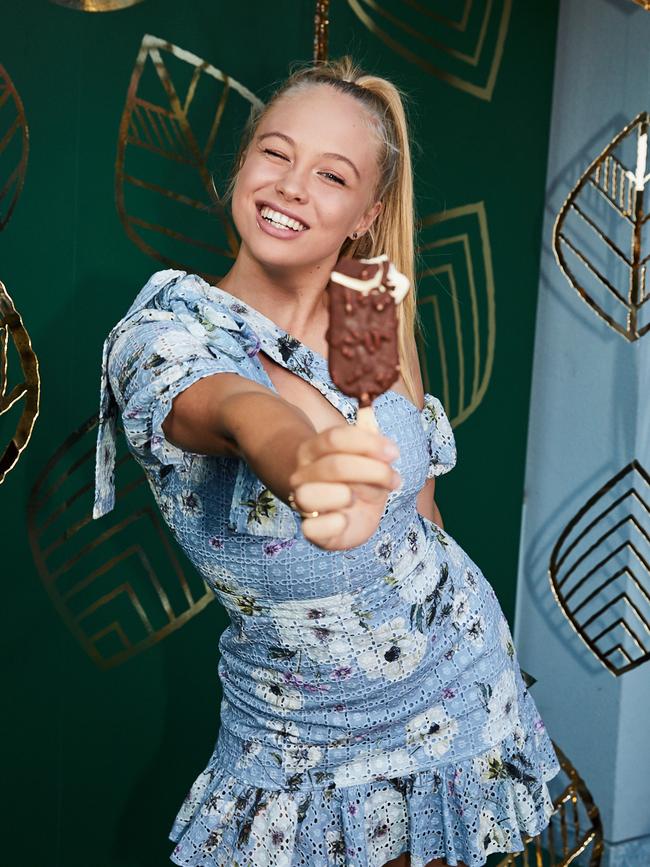
McBride, 49, stopped eating meat at 21 for ethical reasons, and became a vegan seven years ago.
In that time she has witnessed an exponential shift away from the perception of vegetarians and vegans as nuts-and-berries fringe-dwellers, as growing numbers respond to concerns about global warming and factory farming of animals, or simply choose more plant-based meals for better health and weight loss.
“Having been in that scene for 29 years now I can see how much it’s expanded,” she says.
“In the last year alone, it’s grown like never before. You can’t go to a restaurant now without seeing vegan items, you can’t go to the supermarket without seeing a full range of vegan everything. The world is changing so quickly that every company is jumping on board because this is the next big thing. It’s not going away. It is getting bigger. It’s not a fad diet, it’s a reality for helping our planet, helping people’s health and obviously helping the animals.”
The growth in consumer demand for vegan products may well be driven by part-time vegans (Meghan, Duchess of Sussex has put herself in that category) keen to manage their health and their weight, but those whose diet is guided by their conscience are also seeking to flex some political and financial muscle.
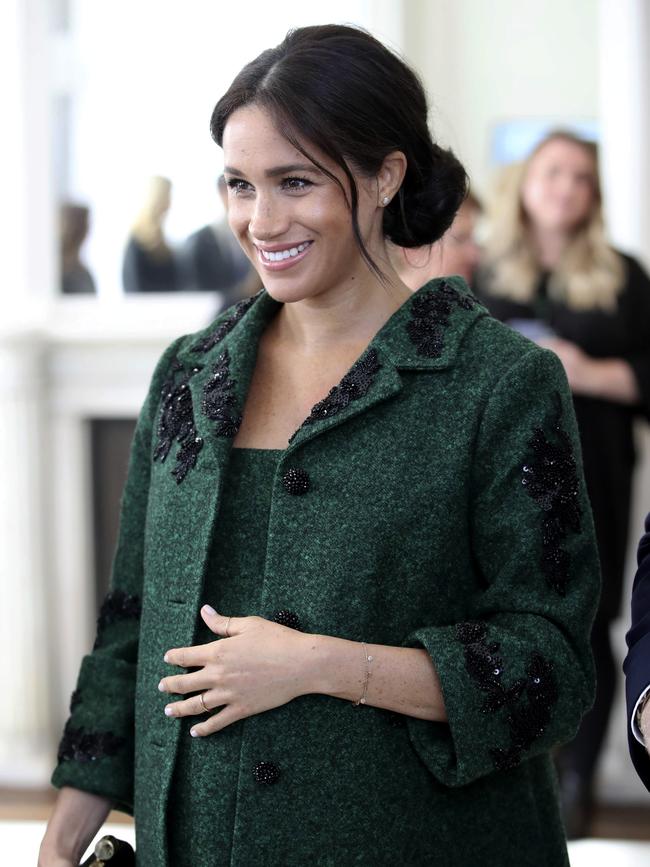
In the UK, Barclays Bank reports that millennials are driving a change toward socially responsible investing, with one in five under-40s making an investment with its ethical impact in mind.
Tom Hunt, the editor of Ethical Consumer magazine, told The Times that concerns about climate change were behind the popularity of veganism.
“People are eating plant-based diets for environmental reasons,” he said.
“As the younger generation sees that high-level action, such as the United Nations’ Climate Change conferences, are slow at producing results, veganism is a lifestyle change that individuals can make now.”
This year in the US a new exchange-traded fund (ETF) – the US Vegan Climate ETF – will focus on vegan-friendly companies.
Bill Gates, who was one of the investors in the Beyond Burger (the bleeding beetroot pattie), named meat-free burgers in the top 10 breakthrough technologies of 2019 in the MIT Technology Review.
An analysis by the Centre for Sustainable Systems at the University of Michigan found that the Beyond Burger generates 90 per cent less greenhouse gases than a beef burger.
The new techonologies are in a race against the skyrocketing demand for meat: consumption is predicted to rise 70 per cent by 2050, as more people join the middle classes in poorer nations.
For people like McBride and Shannon Romeo, becoming vegan was always about animal welfare.
“It was purely ethical,” says McBride.
“I was living in the close northern suburbs and I would see the trucks with animals going to the slaughterhouse. And the connection was just too great. The smell was too intense, the look of fear on the animals’ faces as they drove past us, I just can’t get that out of my mind.”
Romeo, who works as a project officer for the SA Housing Authority, tells a similar story, of driving down the freeway on her daily commute, passing trucks loaded with beasts bound for slaughter.
“It’s heartbreaking,” she says. “And it’s frustrating because not everyone can see it. They put their blinders on.”
Both are politically engaged. Two months ago, Romeo signed up with the Animal Justice Party and is assisting in its campaign for the next federal election.
SA is the only state where the AJP is fielding candidates in all its Lower House seats. Nationally the party, founded in 2011, holds a seat in the upper houses of Victoria and NSW, where there are high hopes for a second when results come in next week.
In the federal poll, the AJP’s lead senate candidate in SA, Louise Pfeiffer, is considered its best chance of a seat.
Pfeiffer won 3 per cent of the vote in the state seat of Kavel last year. “We tripled our vote for the Upper House from the previous state election,” she says.
The support base is small – less than 500 members in SA, and about 5000 nationally.
“But year on year our votes are increasing,” says Pfeiffer. “We see ourselves as where the Greens were about 15 years ago. So we’re a growing political force.”
The party’s primary goal is to field candidates across all seats nationally, both state and federal, and to build its primary vote.
At a state level, it aims to ban duck shooting, and federally to secure a ban on all live exports.
“We know that the most positive way to achieve change for animals is to represent them in parliament and change legislation,” she says.
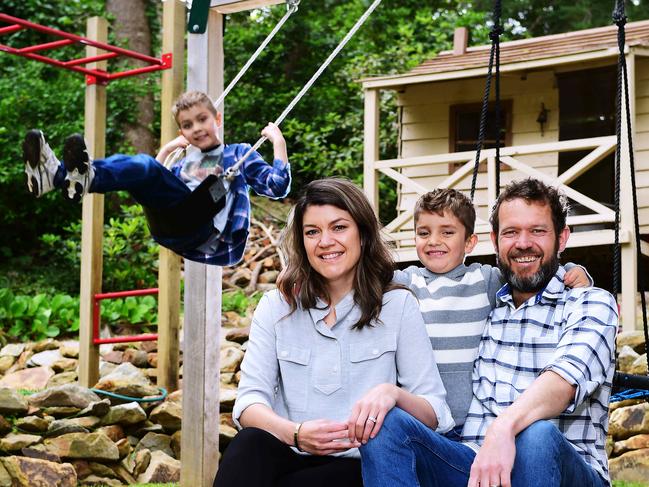
Pfeiffer, 41, has been a vegan since 2011.
A financial services professional with a background in funds management and superannuation, she’s keenly aware of the economic importance of farming to rural communities.
“The Animal Justice Party cares deeply about the welfare of rural communities and we want to see farmers keep putting food on the table for Australians,” she says.
“We support a transition to more sustainable forms of agriculture.”
She’s not expecting instant change.
“Of course, it’s not going to be instant,” she says.
“But if we don’t plan for the changes that are already happening through consumer demand and other things, then that’s not going to help farmers either.”
Pfeiffer was profoundly influenced by philosopher and bioethicist Peter Singer’s book Animal Liberation, which was a text in her university ethics course.
She stopped eating meat in 1995 and gave up dairy after she became a mother.
“I watched a TV special on bobby calves, about how 800,000 baby calves are taken away from their mothers in Australia alone, and slaughtered at a few days of age,” she says.
“It really struck home. I had my own baby in my arms, and I had nightmares. I finally made that connection between how dairy was produced and, being a mother myself, I really empathised with the cows.”
Like the Romeos, Pfeiffer and McBride are raising their children as vegans.
McBride’s son, Mackenzie Kalenjuk, is a vegan activist with an Instagram following, and the family dogs got international media coverage – and some vicious trolling directed at McBride – after a story about their vegan diet appeared online.
As far as their children’s diet is concerned, “some things are exempt, like medications,” says Romeo.
“Vaccinations obviously have eggs in them, but our girls are fully vaccinated.”
Parents and children also take multivitamins, and they have fortified non-dairy milks and cereals.
Maria Makrides, Professor of Human Nutrition at the University of Adelaide and deputy director of SAHMRI, says the usual advice for a healthy diet is to eat a wide variety of foods from all the different food groups.
“So the main concern is that when you’re cutting out whole food groups like meat, dairy and eggs, you need to be a lot more careful about what you actually eat to make sure you’re meeting all of your nutritional requirements,” she says.
“And the key nutrient that we would worry about is Vitamin B12 because you only find it in animal products. You can’t naturally get B12 from plant-based products.”
B12 deficiency in babies is especially dangerous, leading to seizures and development delays.
The two other nutrients that need “special consideration, especially for growing children” are iron and calcium, adds Makrides.
“And although we can get iron from legumes and nuts and whole grain cereals the form of iron that comes from plant-based products is a non-heme form so it’s a bit harder to absorb than the form that’s in animal foods.”
Combining those foods with vitamin C rich vegetables – as is found in many Indian and Mediterranean recipes for pulses with, say, tomatoes or red and green peppers – assists with absorption.
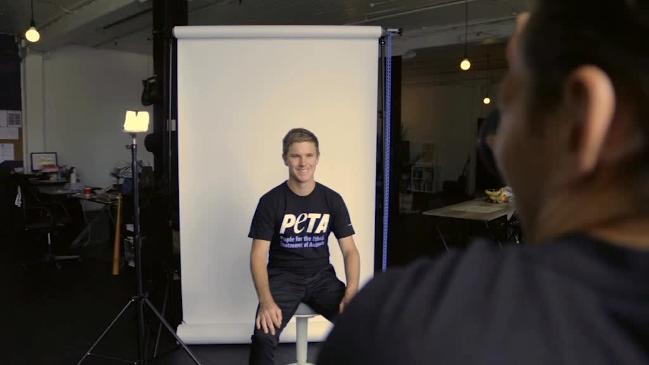
Helping to raise the profile of the healthy vegan lifestyle are plant-powered athletes like Adelaide Crows captain Erin Phillips, cricketers Adam Zampa and Peter Siddle, and sprinter Morgan Mitchell.
At last weekend’s Adelaide Fitness Expo, bodybuilder Billy Simmonds was one of the guest speakers.
Based on the Gold Coast, Simmonds, 39, has been a vegan for 10 years, and before that was a vegetarian for a decade.
He won the International Natural Bodybuilding Mr Universe title in 2009, and his business manufactures and sells plant-based nutritional supplements.
“Protein is definitely the nutrient you need more of in bodybuilding, and there’s a big culture of eating steak, chicken and eggs, of thinking that only animal foods contain complete protein, whereas there are many varieties of plant protein that contain all the different nutrients you need to build and repair muscles,” says Simmons.
“I eat tofu, beans, grains, greens, nuts and seeds, and I get plenty of protein from those foods.”
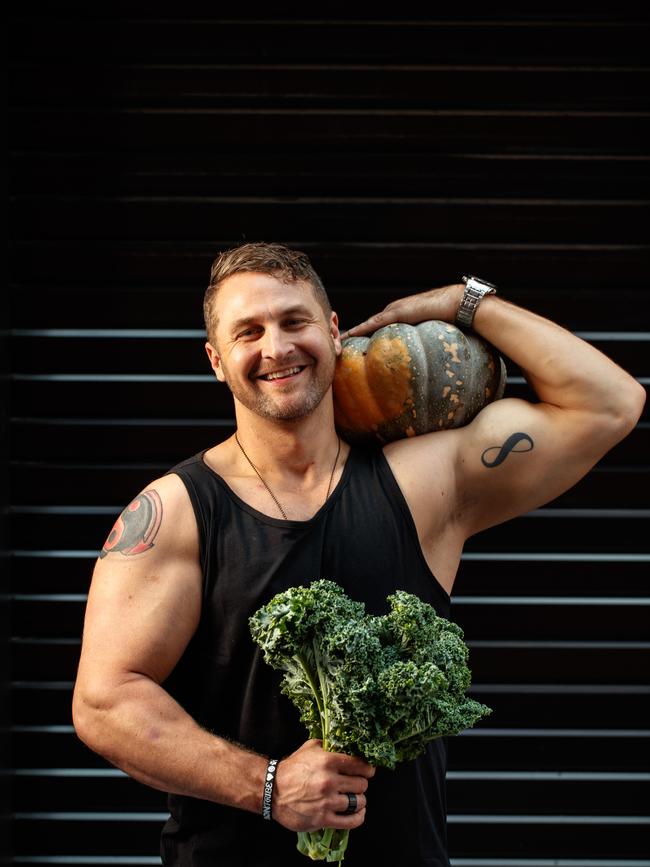
Simmonds is currently preparing to compete in the INBA Mr Universe title later this year. Like other long-time vegans, he’s seen a dramatic shift in awareness and acceptance of plant-based diets.
“Before, the knowledge wasn’t there but now with people like me and other athletes out there we’ve shown that these plant-based foods can give you the nutrients you need,” he says.
“The public perception now is that it’s possible to achieve at a high level.”
Not everyone is on board. The word “vegan” can elicit vehemently negative responses from some meat-eaters.
Hence the widespread use, especially by mainstream food producers, of the term “plant-based”.
McBride has had her share of abuse, most recently after that story about raising her dogs on a vegan diet.
“I received a lot of death threats,” she says. “It’s so silly when you’re trying to be kind to the world, to the planet, and people want to kill you.”
Tasting Australia (until April 14) includes vegan food for sale in Adelaide Square; Vegan Palooza at MAB Innovation Hub, Tonsley (April 14, 11am-6pm), and vegan cooking
classes with Fino chef David Swain (sold out)

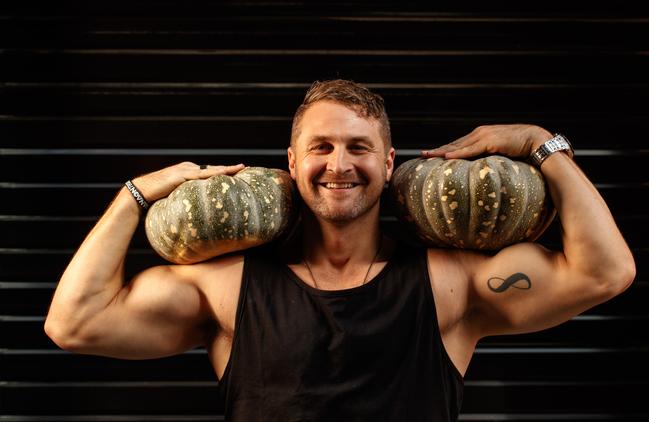
Add your comment to this story
To join the conversation, please log in. Don't have an account? Register
Join the conversation, you are commenting as Logout
Adelaide’s pioneering bid to end homelessness in the CBD
A new move to learn the names and stories of the homeless is driving a bid to cut Adelaide’s rough sleeper numbers to effectively zero. Roy Eccleston reports.
From YouTube to big screen: Adelaide’s car prankster’s directorial debut
They are the Adelaide brothers who became billion-view YouTube stars after an underwater car stunt gone wrong. Now the RackaRacka duo's debut feature film is about to hit the big screen at a gala event. Read their incredible back-story.